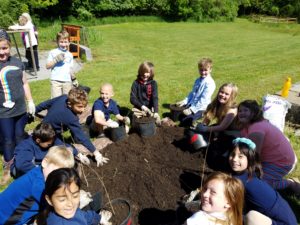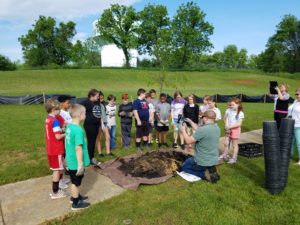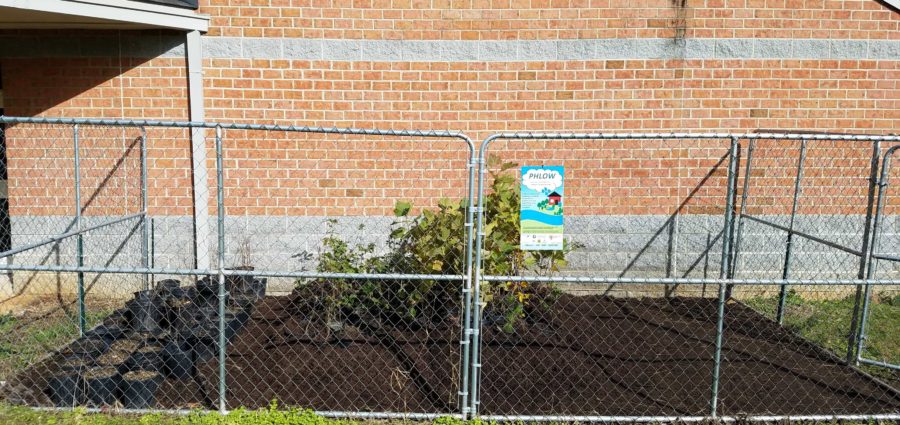Growing Native continues to grow saplings and communities throughout the Potomac River watershed.
Cacapon Institute continues to support Potomac Watershed Partnership’s Growing Native program in the Potomac headwaters of West Virginia and Virginia. Through in-classroom lessons and schoolyard projects focused on growing native trees, schools have access to outdoor learning and help protect rivers and watersheds by sourcing native trees to their communities. Trees provide many benefits, including stormwater pollution filtration, climate regulation, flood reduction, wind protection, shade creation, and increasing wildlife habitat. Students are able to support these benefits by either collecting native seeds to grow trees or growing native tree saplings in caged Grow Out Stations to disseminate into the community.
During the 2018-2019 school year, three schools started the Growing Native program with new Grow Out Stations. Petersburg Elementary, Warm Springs Intermediate, and Jefferson High schools have plans to use evergreens to protect their campus from wind, sell flowering trees into their suburban community, or donate fruit and shade trees to families in the local watershed. In spring of 2019, 350 tree saplings were potted by over 200 students and placed in the new caged Stations. Over the year, students will help to care for and inventory the saplings until they become trees that are ready to be planted in spring of 2020.
Cacapon Institute also supports schools who have potted saplings in past years to continue the program and grow more native trees in the region. Students from Martinsburg South Middle School, Orchard View Intermediate School, Paw Paw School, and Jefferson Academy in West Virginia, and Riverheads Elementary School in Virginia became watershed stewards as they continued to work with the saplings that were planted the previous spring. In fall of 2018, the student volunteers helped to weed and mulch their Grow Out Stations and inventoried the saplings after the summer season. In the spring, students at the five schools engaged in education and assisted in preparing the trees to be donated or sold out of their Grow Out Station. Trees were sold to parents, donated to staff, and sold at the Berkeley Springs Plant Fair. After the trees were sent into the community, new native saplings were potted by the student volunteers to grow for spring 2020. Over 575 tree saplings were potted at these five schools, including saplings that were grown from native acorns collected by the fourth graders at Riverheads Elementary.
With the help of the student volunteers and lead teachers, almost one thousand trees have been potted to grow in the Potomac River watershed this year, with native species like dogwood, redbud, red maple, white oak, sugar maple, sawtooth oak, scotch pine, loblolly pine, and common apple. Cacapon Institute would like to thank all of these volunteers in their effort to protect waterways and provide countless other benefits to the environment.




